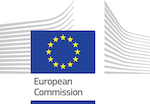
This Anti-Corruption Helpdesk brief was produced in response to a query from the European Commission. The Anti-Corruption Helpdesk is operated by Transparency International and funded by the European Union.
Query
Can you provide innovative good practices and possible solutions in preventing and fighting corruption within the judiciary (courts, judicial self-administered bodies and prosecutors’ offices) in countries where the separation of powers and freedom of the media are limited?
Note
This answer is also available in French and Spanish.
Content
1. Innovative approaches to preventing and reducing corruption in the judiciary
2. Anti-corruption measures in the organisation and staffing of courts
3. Anti-corruption measures related to legal and court procedures
4. Preventing corruption among judges
5. Preventing corruption in the public prosecutor’s office
6. Preventing corruption in judicial and prosecutorial councils
7.References
Summary
Fighting corruption in the judiciary remains a great challenge, particularly in countries where the separation of powers is weak and courts and prosecutors are subject to political influence. While eradicating undue influence in the judiciary requires a complete overhaul of social norms and values, there are several operational reforms that may help prevent political influence and reduce certain types of corruption. They usually include measures such as the introduction of an adequate case management system, ethical and technical training for judges, court staff and prosecutors, appropriate salaries and benefits, the adoption of clear rules for the appointment, promotion, transfer and removal from office of judges and prosecutors, as well as several others.
Innovative approaches in this area seem to relate to the use of technology, not only to improve the management of documents and communication within the judiciary system, but also to enhance transparency and accountability to the general public. Within this framework, civil society organisations are increasingly playing an important role in monitoring and overseeing, as well as in providing training courses to the judiciary and even in ensuring the fair appointment of judges. Other innovative approaches include the adoption of specialised prosecution bodies, the recording and monitoring of court proceedings, and limitations to immunity, prosecutorial discretion and duration of proceedings.
Authors
Maíra Martini, Transparency International, [email protected]Reviewers
Marie Chene, Transparency InternationalDieter Zinnbauer, PhD, Transparency InternationalDate
10/03/2014
